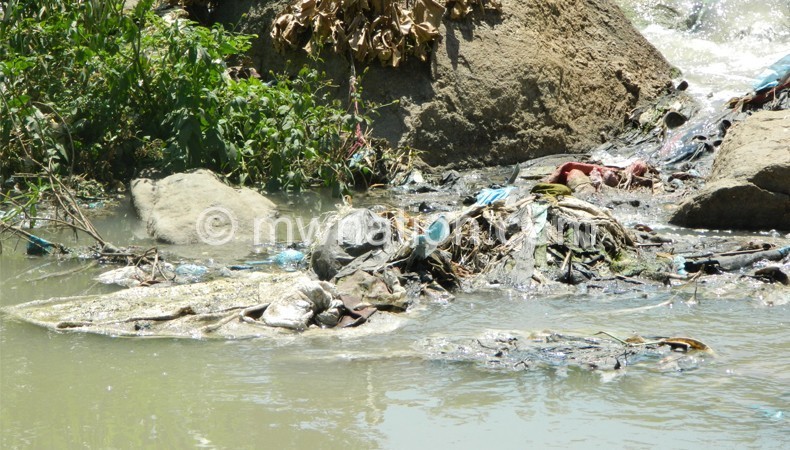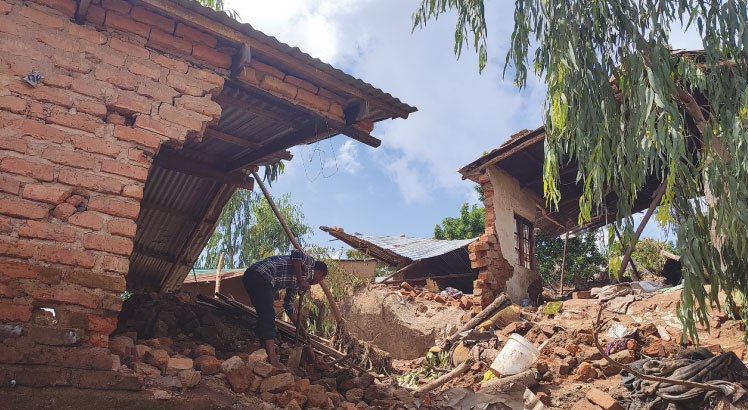Learning the hard way in Rwanda
During a recent visit to one of East Africa’s rising economies, Rwanda, by African Union (AU) delegates there was no short of drama and archetypal lessons.
The team was on a mission to appreciate how the once war-torn country is transforming its economy after ethnic conflicts reduced most of its citizens to refugees outside the country.

The team arrived in Rwanda’s capital Kigali on a Wednesday. However, while representatives from other countries had an easy security check on their luggage at Kigali International Airport, the Malawi delegation had a rude awakening.
Its representative, human rights activist Robert Mkwezalamba, was withheld for some hours after his luggage had failed a security check test after thin plastics he used to wrap some souvenirs in his luggage had violated that country’s laws. It is illegal to use thin plastics in Rwanda.

He was pulled aside with his luggage for interrogation.
“I was politely asked to choose between losing the parcel into the bin or go back to Malawi,” says Mkwezalamba, who is also the executive director for Human Rights Consultative Committee (HRCC). “I had to proceed with my trip.”
Rwanda is one of the African countries that have successfully banned the use of thin plastics because they are considered hazardous to the environment apart from making places unhygienic.
No wonder, Kigali is rated among the cleanest cities in the world. This success is being attributed to that country’s vigilance in implementing local and international policies and treaties, one of them being the ban on use of thin plastics to preserve the environment.
Rwanda is a model in Africa in terms of ratification and implementation of international treaties. By the end of 2015, the country had ratified and domesticated 33 of the 49 legal instruments in the form of charters, treaties, protocols and conventions initiated by the AU.
It comes second to Mali, which has domesticated 37 of these legal instruments. Malawi has so far domesticated 22.
While domestication of these protocols does not necessarily translate into development, the process is a step ahead towards improving the economy in the short, medium or long term.
In contrast, the story in Rwanda is far from reach here in Malawi. The ban on thin plastics has faced legal battles and the future is not promising. To date, the country’s marketplaces are littered with thin plastics, which eventually, find their way into the environment such as water and forest reserves, farmlands and landfills. They degrade the environment due to their inability to decompose fully.
The visiting team had many lessons before them, but to Mkwezalamba that was just a formality. The airport experience was enough.
“Malawi has signed many protocols and we formulated many policies which if implemented fully can dramatically turn around the country. We need to up our game when it comes to implementation of protocols,” he says.
Rwanda’s International Justice Department head Providence Umurungu says the ratified AU instruments, which cut across sectors are now part of domestic laws.
They are equally observed as provided for by the Rwandan Constitution which states that “upon publication in the Official Gazette, international treaties and agreements, which have been duly ratified or approved, have the force of law as national legislation”.
Rwanda created a 40-member institution that participates in the domestication process of policies. There is also an institutional framework that oversees processes of accountability and reporting. The line ministry, Parliament, civil society organisations, media and the community participate in the processes at different levels.
“Government established institutions to champion the implementation of activities. There is a national priority and enhanced political will right from the executive downwards,” says Umurungu. “Women representation in decision-making structures is at 61 percent and 38 percent in Parliament.”
The biggest lesson from Rwanda is that before signing protocols, there must be processes complemented by support from relevant stakeholders before and after signing protocols or treaties. These processes should be tied together to support the successful implementation of the policies while ensuring that all protocols signed are implemented and domesticated.
State of the Union (Sotu)-Malawi Chapter national coordinator Edward Chileka says ratification of the AU instruments in most member States hardly faces hiccups, but implementation is not satisfactory.
He says lack of consultation and engagement at national level slows the processes. He also observes that some ministries sign instruments on behalf of government without planned processes.
“Most countries sign because of pressure from the AU. Others have cultures and beliefs that sit against them and so hardly implement them. Lack of communication on the domestication processes and corruption are other impeding factors,” he explains.
AU-Southern Africa Office regional delegate Leopold Auguste Ngomo said the take home message is that: “Without domestication of treaties, there will be no implementation and without implementation, do not expect change.”





